Ever found your skin excessively dry during a particularly cold winter? Ever had to change your moisturizer during the summer your skin was suddenly too oily?
Or have you noticed your skin becoming significantly different each time you go to a country with a climate unlike your home’s?
Well, if you’ve noticed these things but never quite found out why exactly they happen, you’re in luck! This article might just answer all of the questions you have.
Today, Venofye will be talking about humidity — what it is, what it does to your environment, and how exactly it can affect how your skin behaves.
What is Humidity?
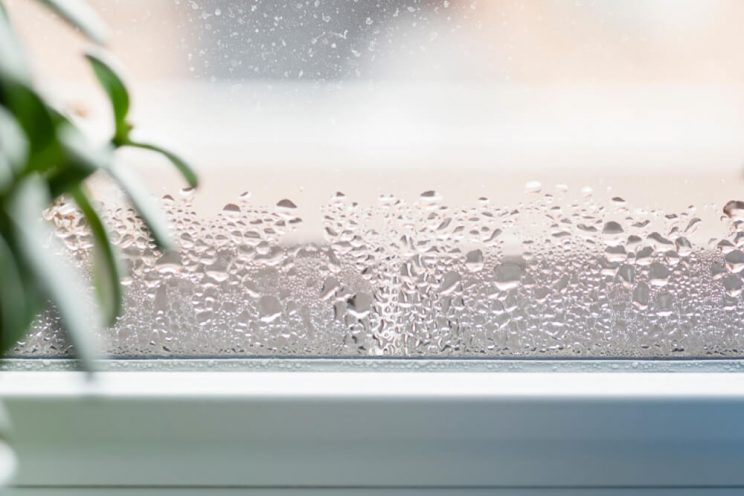
Before we can fully dive into what humidity does to the skin, we have to understand what it is first.
Simply put, humidity refers to the amount of water vapor – the gaseous phase of water – in the air. Hence, when we say high humidity, we mean to say that there is a high amount or concentration of water vapor. On the other hand, with low humidity, there’s not much water vapor in the atmosphere.
Humidity is often associated with temperature, because the maximum amount of water vapor the air can hold in an area depends on the temperature there. The higher the temperature, the more water vapor the air can hold. So, in lower temperatures, the air isn’t able to hold much water vapor.
When humidity is high, the air usually feels wet. Because the air gets clogged with water vapor, it becomes difficult for excess water vapor to occupy the air. This is the reason why we feel sticky and sweaty when it’s humid—sweat doesn’t evaporate readily in highly humid environments, as the atmosphere is already filled with water vapor.
Another important concept related to humidity is what is called relative humidity.
What is Relative Humidity?
Relative humidity refers to the amount of water vapor currently in the air, measured relative to the maximum humidity the air can hold. This is a better measurement of what humidity levels are desirable for you and your skin, especially indoors, since this takes into account the maximum possible amount of water vapor that the air around you can hold at the moment.
Low Humidity and Its Effects on the Skin
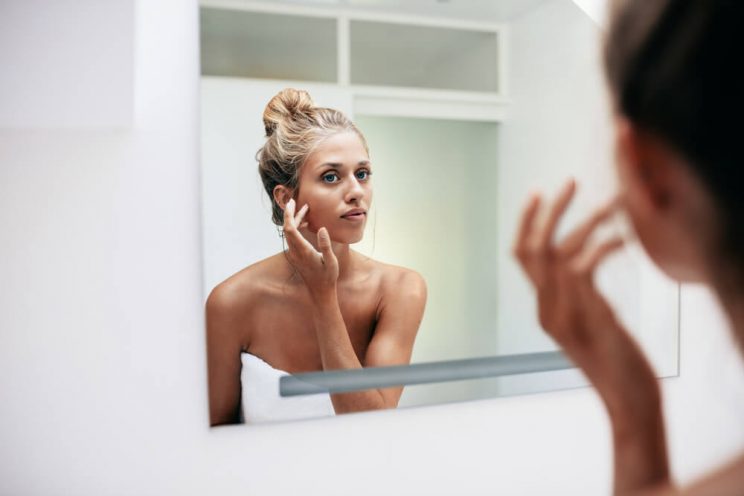
Low humidity levels are typically associated with cold, dry climates. This may sound appealing, especially for people with oily skin who are tired of their skin oiling up during the day… but low humidity can actually cause a lot of harm to the skin.
Here are a few reasons why low humidity levels can be bad to your skin:
It Strips the Skin of Moisture.
Cold and dry climates tend to be drying to the skin. With little to almost no water vapor in the air, the skin becomes deprived of much needed moisture and hydration, which can be detrimental for it. You may even find your skin becoming redder or itchier in this type of climate.
As a result, the skin may become flaky and chapped. In some cases, excessive dryness can even lead to small tears or wounds on the skin.
It Causes Dead Skin Cell Build-Up
Because the skin isn’t moisturized enough, dead skin cells aren’t shed easily. Hence, they pile up on top of the skin. This becomes a problem when these products end up blocking the skin from absorbing its needed moisture and hydration from your skincare products.
It Makes the Skin Look Older
When the skin is extremely dry, fine lines and wrinkles end up becoming deeper, more pronounced, and more obvious. The skin also seems less supple and elastic, which makes it appear duller and older than it actually is.
It May Exacerbate Allergies and Other Existing Skin Conditions
If you are suffering from ecze`ma or other allergies on the skin, the cold climate may end up drying your skin and causing further flare-ups and allergies. In addition, the peeling and cracking that may result from excessive dryness puts you at higher risk of infection.
Adjusting to Low Humidity Levels

These negative effects can certainly seem daunting and scary, but you need not worry! It’s easy to protect your skin from taking excessive damage due to the low levels of humidity in the air. Here are a few steps you can take to prevent the appearance of the effects outlined above:
Use a Rich Moisturizer
Providing your skin with ample moisture and hydration is key towards keeping your skin feeling healthy in low humidity environments. With the right moisturizer, you can prevent your skin from feeling dry and flaky.
Rich facial moisturizing creams with glycerin, hyaluronic acid, and ceramides deliver the best hydration for your skin. Make sure to look for these ingredients to ensure maximum hydration.
It is recommended to use your moisturizer right after you’re done with your shower, when your skin is still damp, so that you can lock all the moisture in your skin. Of course, you should also mind your whole body and invest in a body lotion with the same ingredients.
For best results, we recommend using Venofye’s Beehive Hydracap. Made with Hyaluronic and Vitamin E, this night moisturizer is sure to provide your skin the moisture it needs during extremely dry weather.
For your body, you can try out either Venofye’s Body Butter or Body Cream. Both will surely restore hydration to your skin in no time.
Drink More Water
To compromise for the lack of moisture outside, it’s important that you constantly drink water to keep yourself hydrated. Couple this with a healthy diet, and you’re sure to keep your skin healthy.
Exfoliate on a Weekly Basis
To avoid dead skin cells from piling up, it’s important that you exfoliate weekly to ensure your hydrating products can properly and effectively penetrate your skin. To slough off those dead skin cells, why not try Venofye’s Salt Scrub? Made with gentle but powerful ingredients, this scrub can remove your dead skin cells while ensuring your skin doesn’t get damaged in any way!
If you’re not one for physical scrubs, the Blossom Bee Facial Peeling from Venofye can certainly provide the gentle exfoliation you need, all without stripping your skin of its natural oils.
Use an Air Humidifier
To balance relative humidity levels, especially indoors, consider investing in an air humidifier. It is said that a humidity level of 30 to 50 percent is best for the skin. This also ensures you have ample moisture indoors that can help protect your skin from drying out.
Bundle Up When Going Outside
To provide your skin additional protection from the cold air outside, it’s a good practice to bundle up when going outside. Wear gloves and other protective pieces of clothing to keep your skin covered.
High Humidity and Its Effects on the Skin
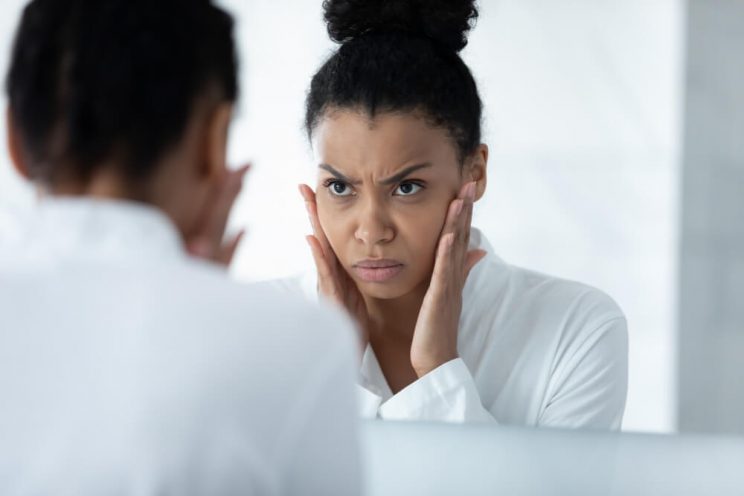
Of course, we also have to talk about the opposite of low humidity. Let’s find out just how highly humid environments affect the skin.
Well, believe it or not, high humidity poses benefits for the skin’s overall health. Here are a few things you can expect from humid environments:
The benefits of a humid environment for the skin are:
Hydration
Because humid air is particularly rich in moisture, you won’t have to worry about your skin drying out. You can certainly expect your skin to be more supple and hydrated, especially when compared to cold, dry climates.
Increased Cellular Turnover
Another good thing about added moisture in the air is how this can promote cellular turnover. With the skin adequately moisturized, the skin’s regeneration process is stimulated, leading to a regular shedding of dead skin cells. This makes your complexion brighter and more radiant!
Anti-Aging Effects
Dry skin makes fine lines and wrinkles more pronounced. But, with the hydrated skin that comes with a humid environment, these concerns become the least of your worries.
Negative effects of high humidity to the skin
Unfortunately, for all its good benefits, high humidity can still be detrimental to the skin.
Here are some of the ways in which it affects the skin negatively:
It Causes Excess Sebum Production in the Skin
High humidity is often associated with warm, hot weather. During this time, the skin tends to produce more sebum than usual; however, the excess oil the skin produces tends to simply get trapped on the surface of the skin.
The result? Your skin feels greasy and oily. This is precisely why people living in humid, temperate climates usually claim to have oily skin!
It Can Make You Break Out
You probably know already what bad news follows extreme sebum production—acne breakouts, of course! More oil means more chances of clogging your pores, which can lead to a breakout.
Another problem is that humid environments are usually a breeding ground for bacteria. That means, you get yet another ingredient for a huge acne breakout. There’s also the issue of added dirt, since humid environments make you sweat excessively.
It Can Exacerbate Asthma, Allergies, and Other Skin Conditions
Just like with low humidity, your skin conditions can get worse with humid environments, too! This is specifically true for conditions such as skin asthma, allergies, and heat rashes.
When relative humidity is high, especially indoors, allergens such as dust mites and molds can grow more easily. This is because these allergens thrive in moist environments. When you get exposed to these allergens, it’s easy for all sorts of allergies to occur, often leading to rashes and hives.
On the other hand, the hot, moist climate is perfect for making skin asthma and heat rashes worse as well. Heat rashes happen when sweat ducts are clogged—and, with the perspiration that comes with humid environments, this becomes more likely to happen.
Adjusting to High Humidity Levels
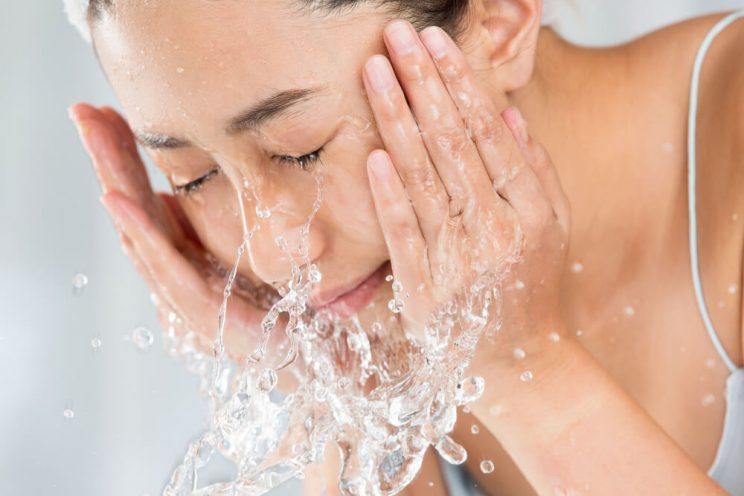
Because high humidity has its advantages and disadvantages, it’s important to adjust your routine in high humidity environments to take care of your skin better!
Here are some steps you can take to fortify your skin against the visible effects of high humidity:
Choose Oil-Removing Cleansers
During humid climates, it’s best to go with oil-removing cleansers to control excess oil produced by your face. This also ensures you minimize your risk of clogging your pores. For a hydrating yet effective cleanse, check out this Queen Bee Cleansing Duo from Venofye. Made with Vitamin B3 and hyaluronic acid, this will surely keep your skin feeling supple yet well-cleansed.
Exfoliate Your Skin
It’s still important to exfoliate your skin, though dead skin cells don’t accumulate in humid weather as badly as they do in cold climates. This time around, your focus is on making sure dirt and skin cells won’t clog your pores, leading to acne breakouts.
Use Lighter Moisturizers
Moisturizing is always a must — even when humidity is high! This time around, though, opt for lighter moisturizers to keep your skin moisturized, while allowing it some room to breathe.
This day moisturizer from Venofye may be just what you need. Light and gentle enough for daily use, it will keep your skin’s oiliness at bay while providing you ample hydration.
Avoid Touching Your Face
Keeping the skin clean is always a must, regardless of the weather or humidity, but it’s even more crucial in humid climates! The best way to ensure you don’t introduce more dirt and bacteria to your face would be to avoid touching it in the first place.
Our hands are often exposed to all kinds of germs and bacteria, and putting them on an oily face is just a huge no-no. Bacteria love moist, oily environments, so it’s imperative that you keep your hands out of your face!
Shower After Sweating
Sweat introduces more dirt and bacteria that may potentially clog your pores. To remedy this, make sure your shower after a strenuous activity, or just after sweating a lot due to the weather. This way, you can make sure your skin is kept clean.
Use an Air Humidifier
Using an air humidifier to control the relative humidity levels, especially indoors, can do wonders for your skin. Decrease the relative humidity inside the house to around 30 to 50%. This way, you won’t create an environment too moist that it encourages growth of allergens that may harm you or your skin.
Humidity, when it is too high or too low, has the potential to harm your skin. Consequently, in the right levels, it can be good for your skin, too!
How your skin reacts to humidity is normal, but it’s not something you have no control over.
If you adjust your routine to accommodate the rise and fall of humidity in your area, you’re sure to protect your skin from potential damage.
Now, you know what exactly to expect when humidity is high or low. Just follow the steps outlined here, and you can be assured that your skin will remain safe from any negative effects humidity can have on your skin.



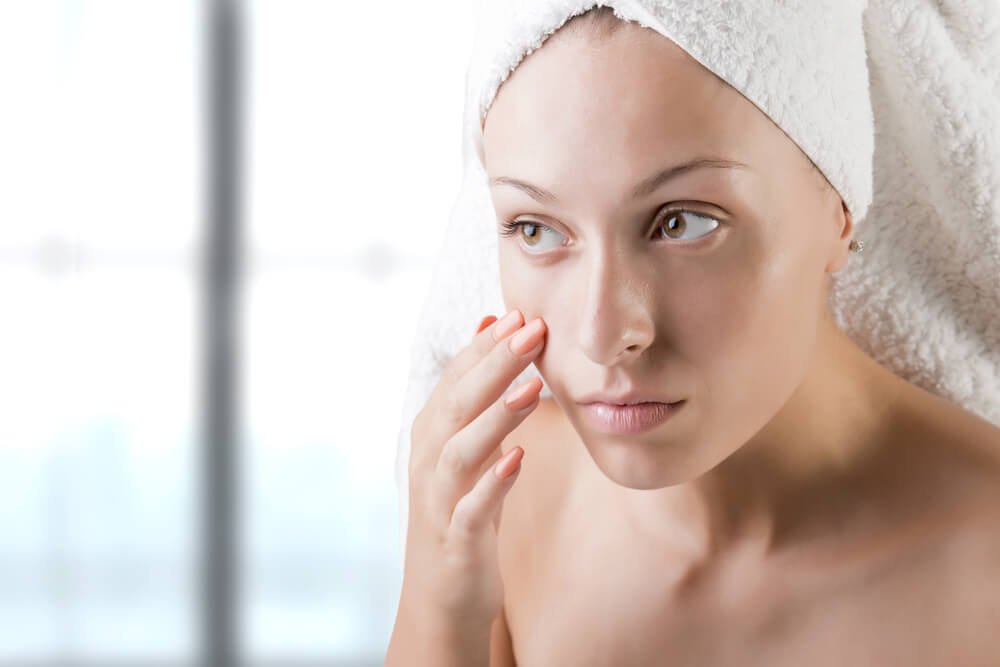
0 comments on “How Does Humidity Affect Your Skin?”